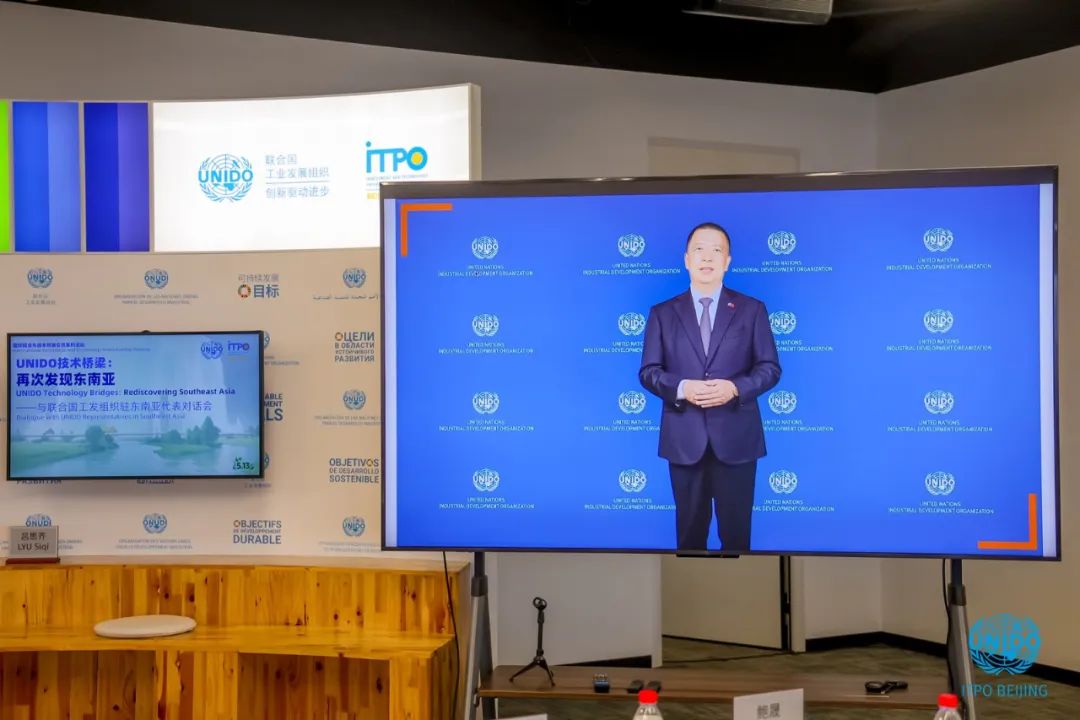Today, the “UNIDO Tech Bridge: Rediscovering Southeast Asia — Dialogue with UNIDO Representatives in Southeast Asia,” jointly organized by the Investment and Technology Promotion Office (China, Beijing) of the United Nations Industrial Development Organization (UNIDO) and the Commerce Bureau of Xiaoshan District, Hangzhou, was successfully held in Hangzhou.

As a selected enterprise in the National Green Technology Database, Passive Edge Technology was invited to participate in this dialogue. Focusing on the application potential of green and low-carbon materials in the industrial upgrading of Southeast Asia, we engaged in in-depth exchanges with UNIDO representatives from multiple Southeast Asian countries, actively seeking new paths for international cooperation.
This dialogue focused on the latest needs of key Southeast Asian countries (Malaysia, Thailand, Vietnam, Laos, Myanmar, Cambodia) in green industry, technology introduction, and SME cooperation. Representatives from UNIDO offices in Thailand and Cambodia provided detailed introductions to project and policy opportunities in energy transition, manufacturing upgrading, and the circular economy.
As a national-level green technology enterprise specializing in high-performance phase change energy storage materials and passive temperature control solutions, Passive Edge Technology shared our innovative achievements in key application scenarios such as cold chain logistics, building energy efficiency, and intelligent temperature control in home textile and furnishing.
Our two independently developed core technologies — UltraST PCM (Ultra-high thermal conductivity shaped phase change material) and MOFPoly PCM (Nano phase change microcapsules) — are providing safe, efficient, and sustainable solutions for the large-scale deployment of green energy around the world, and have received strong interest and positive responses from multiple country representatives present at the event.
As Southeast Asian countries accelerate policies related to clean energy, energy conservation, and livelihood infrastructure, Passive Edge Technology will continue to focus on actual needs in areas such as cold chain upgrading, green buildings, and thermal comfort in civil use. We will expand the boundaries of overseas cooperation and explore more innovative applications combining "technology + scenarios."
We believe that the power of materials science will become a key driver in addressing climate change and promoting global green development.